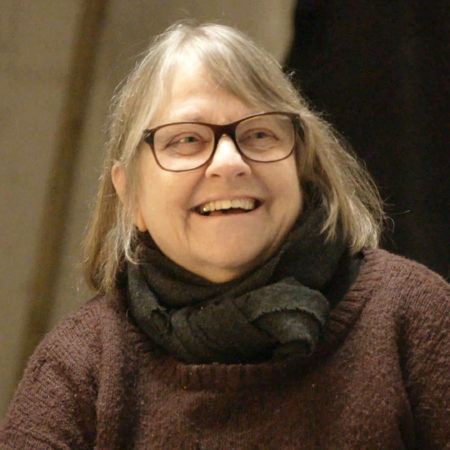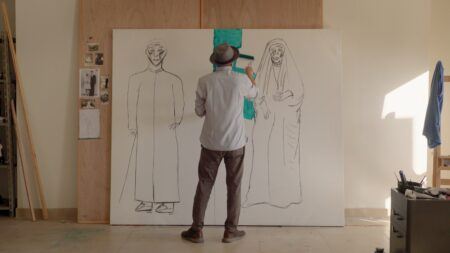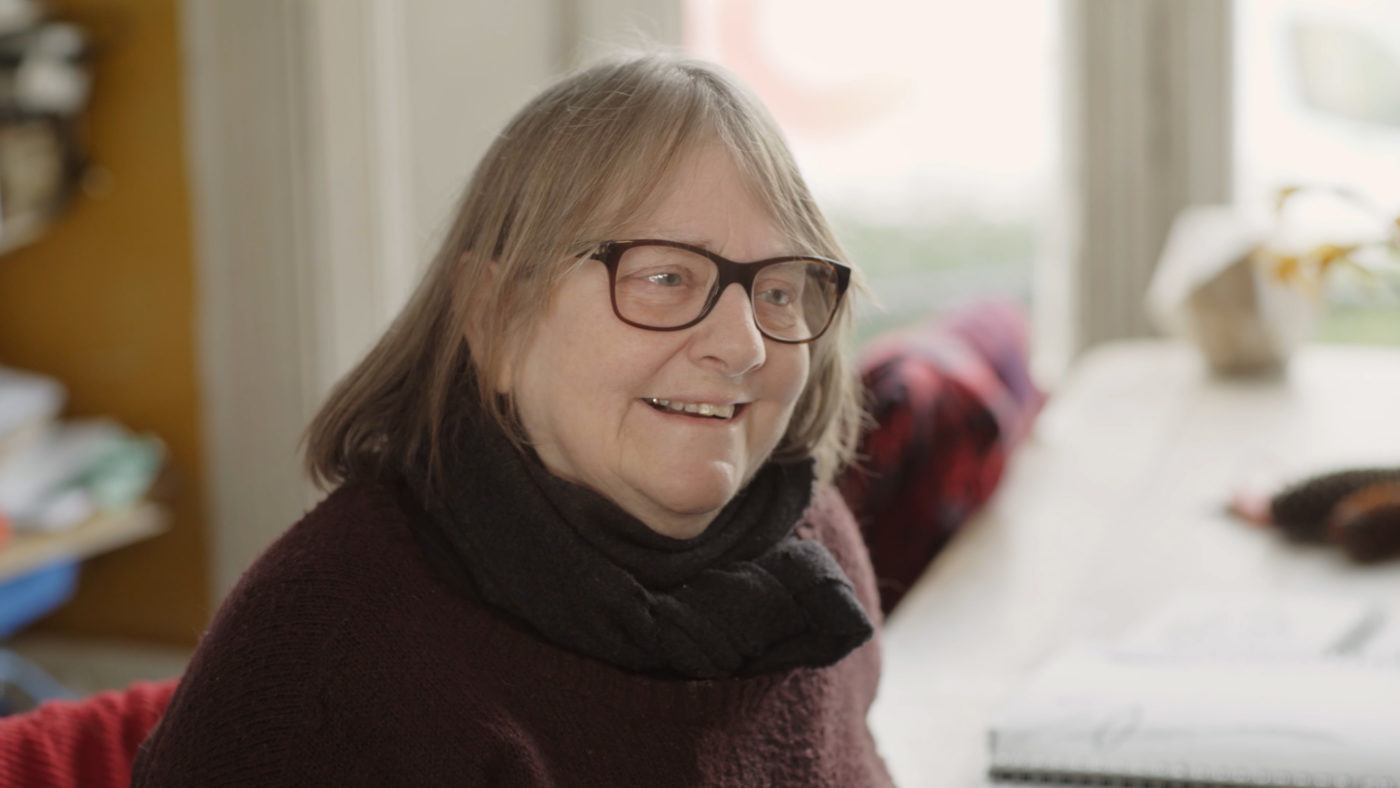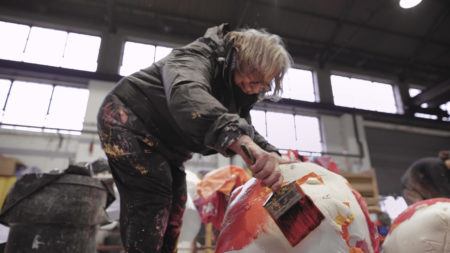Phyllida Barlow

Phyllida Barlow was born in Newcastle upon Tyne, England, in 1944. Inspired by the urban environment, Barlow’s sculptures marry unconventional materials such as cardboard, plywood, plaster, and cement with vibrantly colored paint and fabrics. Her invented forms are created through layered processes of accumulation, removal, and juxtaposition—gestures that Barlow describes as “more functional than artistic.” The resulting massive works challenge viewers’ experiences of physical space, stretching the limits of mass, volume, and height as they tower, block, and interrupt space. Yet these works remain distinctly anti-monumental; the artist leaves exposed, unfinished seams, revealing the means of the works’ making and playing with the tensions between hardness and softness, the imperious and the comic, and the painterly and the sculptural.
Influenced by the early 1960s New Generation Sculpture exhibitions at Whitechapel Gallery in London, Barlow began experimenting early in her career with the sculptural potential of materials unassociated with traditional sculpture, like fiberglass, resin, fabric, and paint. Prior to receiving exhibitions in major museums and galleries, Barlow utilized public and temporary spaces to show her work, developing her exploration of physical space and challenging conventional notions of where sculpture could exist. For forty years, Barlow also worked as a teacher, fostering some of Britain’s most distinguished artists. Since 2009, she has worked exclusively on her art practice and exhibited her work widely in the United Kingdom and internationally.
Barlow studied at Chelsea College of Art in London from 1960 to 1963 and Slade School of Fine Art in London from 1963 to 1966. Major awards include receiving the Aachen Art Prize (2012) and being named a Royal Academician (2011). She has had major exhibitions at Royal Academy of the Arts, London, England (2019); Jupiter Artland, Edinburgh, Scotland (2018); Turner Contemporary, Margate, England (2017); Venice Biennale, Italy (2013, 2017); Nasher Sculpture Center, Dallas, Texas (2015); Tate Britain, London, England (2014); and New Museum, New York (2012), among others. Barlow lived and worked in London, where she passed away in March 2023.
Videos 3
-
Phyllida Barlow
“Making work that does not have a destination has its loneliness and its sadness about it. Many artists endure that for their entire lives, and it’s heroic.”
Phyllida Barlow


